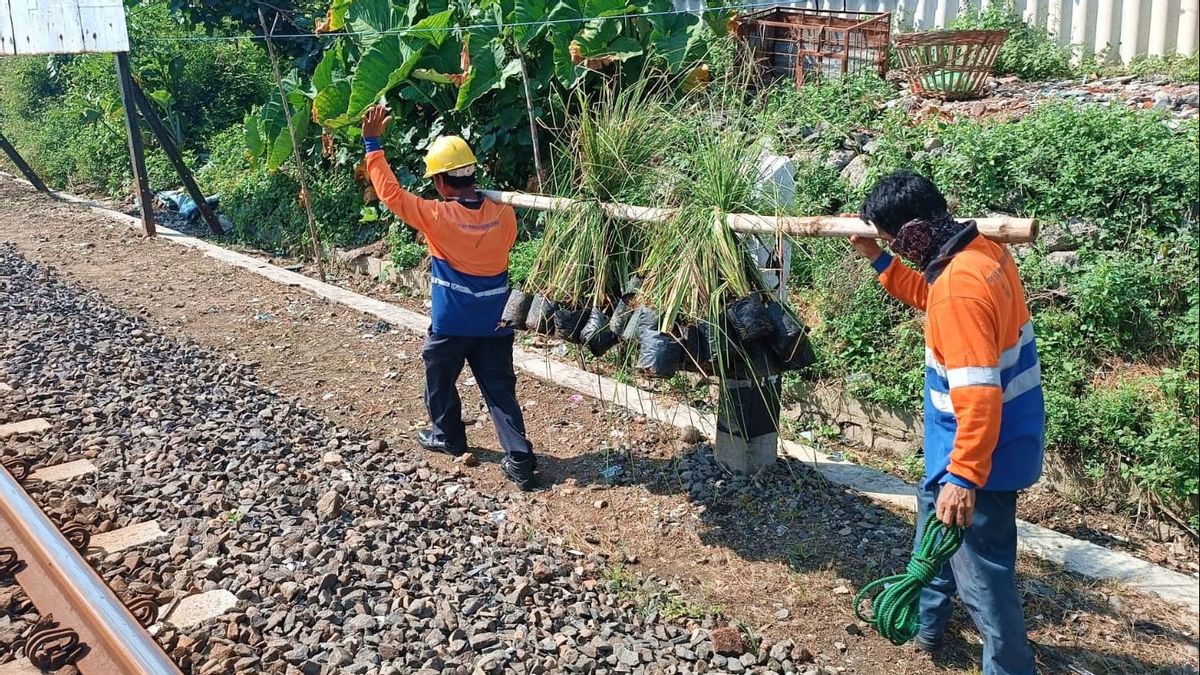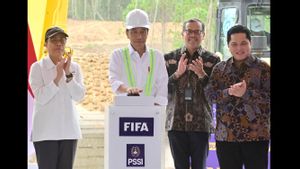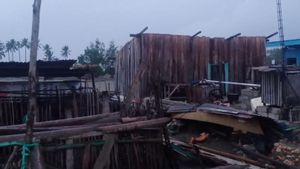JAKARTA - PT Kereta Api Indonesia (Persero) or KAI intensified tree planting and fragrant grass along the railway line. This step is taken in order to maintain the safety of train travel in the rainy season, especially ahead of the Christmas and New Year holiday periods.
VP of Public Relations of KAI Joni Martinus said that currently, KAI has planted 4,311 trees with details of 3,419 tall trees less than 2 meters and 819 trees more high than 2 meters. KAI has also planted 4,706 square meters of fragrant grass on a number of slopes that have the potential for landslides.
The planting of fragrant trees and grass along the railway line is part of KAI's move to maintain the safety of train travel in the rainy season, especially ahead of the Christmas and New Year holiday periods," he said in an official statement, Thursday, December 14.
Joni explained that the tree planting program and this fragrant grass will continue at points that can still be planted.
"trees that live along railroad lines can strengthen soil structures, reduce erosion, and significantly reduce the risk of landslides," he said.
In addition, continued Joni, this plant can also act as a water absorber, help control the flow of rainwater, and prevent puddles that can interfere with train travel.
The fragrant grass is an ecological plant with a unique storage system. This plant has fiber roots that grow straight and not sideways like grass plants in general.
"A straight sheet serves for soil stability while roots with thick and tight arrays function to spread water, hold sediment, and are very resistant to various chemicals for land rehabilitation," he explained.
Joni said the roots of fragrant grass are known to be able to penetrate the 15 cm thick layer which is very hard and in hard, rocky slopes. The grassroots are able to enter and penetrate and become a kind of strong anchor so that they have the ability to prevent slope erosion.
In addition to planting fragrant trees and grassroots, KAI together with the local government also carried out efforts to handle other rainy seasons by cleaning garbage, normalizing rivers, and waterways from mud deposits and hyacinth gangs along the railway line.
In addition, KAI's anticipatory efforts are carried out for the safety of train travel, including by alerting special officers at vulnerable points. The officer is alternately on standby for 24 hours to continue to monitor disaster-prone areas.
"The officers can also immediately take action if there is a problem with the vulnerable route," he explained.
In addition to alerting special officers, KAI has also placed Materials for Alert (AMUS) at various stations adjacent to vulnerable areas. The prepared AMUS is in the form of sand in sack bags, rail pads, iron perforations for retaining track foundations, and others.
SEE ALSO:
"A number of light equipment to heavy equipment such as Multi Tie Tamper (MTT) are also on standby to care for rail conditions so that they are still good to be crossed by trains," he said.
Joni said that we also routinely check lanes on foot or using lori dressin, even regional heads of operations go to the field to be able to make repairs immediately if they find problems.
"KAI continues to proactively strive to prepare all aspects, especially in the face of the rainy season and anticipate landslides and other disturbances to realize the smoothness and safety of train travel," said Joni.
The English, Chinese, Japanese, Arabic, and French versions are automatically generated by the AI. So there may still be inaccuracies in translating, please always see Indonesian as our main language. (system supported by DigitalSiber.id)
















